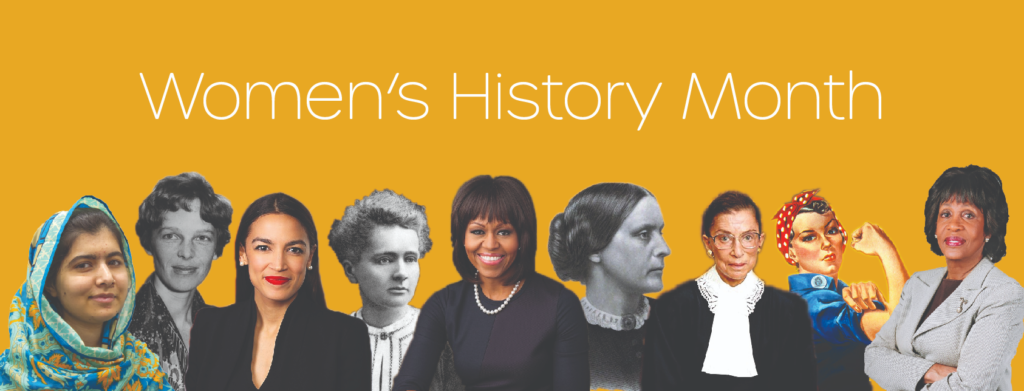
Observed worldwide on March 8 as a celebration of “the social, economic, cultural, and political achievements of women,” International Women’s Day is also a global call to action for accelerating women’s equality.
The theme for this year’s observance is “Embrace Equity.” Organizers at International Women’s Day (IWD) encourage everyone to “Imagine a gender-equal world. A world free of bias, stereotypes, and discrimination. A world that’s diverse, equitable, and inclusive. A world where difference is valued and celebrated.”
In order to embrace equity, it’s important to understand the difference between equity and equality. While both are often thought of as synonymous with “fairness”, the two words have quite different meanings. Equality means everyone gets the same resources and opportunities, while equity means resources are distributed based on individual circumstances so that everyone can reach the desired outcome. As illustrated below, “equality” can actually exclude some people from opportunity.

In its universal campaign to embrace equity, IWD has spelled out several key areas, or missions, that focus on:
- raising greater awareness about issues impacting women’s equality
- taking a stance to call out inequality while working to forge positive action
- highlighting and applauding where important gains are being made
- celebrating women’s achievements and accomplishments

Here in the United States, the entire month of March is known as Women’s History Month. As have all presidents since 1987, President Biden has issued A Proclamation on Women’s History Month, noting that “The full participation of women is a foundational tenet of democracy. Women — often women of color — have been on the frontlines, fighting for and securing equal rights and opportunity throughout our country’s history as abolitionists, civil rights leaders, suffragists, and labor activists. Throughout history, these women have opened the doors of opportunity for subsequent generations of dreamers and doers.”
While great strides in gender equality have been achieved since women gained the right to vote in 1920, there is still much work ahead. Consider these indicators of the gender gap in the United States:
- Women full-time workers earn, on average, 82 cents for every dollar earned by men
- American women earn less than men in all industries, with the most significant pay gaps in management positions
- The construction industry has the smallest gender pay gap, but only 9% of construction workers are women
- Unpaid work like housekeeping and caring for children falls mainly to women
Women’s History Month is designed to not only acknowledge the struggles women have faced through the generations but also to celebrate their amazing achievements.
Some pioneers in women’s history are familiar names, like Susan B. Anthony and Rosa Parks. But countless others, less famous but equally impactful, have forged positive change through determination and commitment.
North Carolina women have a proud history of standing up for what is right. Did you know that one of the first female-organized political protests occurred here in 1774? The Edenton Tea Party, as it is known, was an alliance of 51 women protesting Britain’s unjust “taxation without representation” laws.
Mecklenburg County can claim its own trailblazer in Annie Lowrie Alexander. Born near Cornelius in 1864, she became the first woman to practice medicine in the South. After receiving her license in Maryland, with the highest score and as the only woman among 100 candidates, she returned to Charlotte to practice her profession until she died in 1929.
At Crisis Assistance Ministry, we see women’s extraordinary perseverance and potential every day. Hardworking women like Mariagrazia, who was sidelined by an accident but refused to give up, and Shavonna, whose determination and beautiful spirit are an inspiration to her family and the entire community.


Today and every day, we celebrate all women and their impact on the world. And we dream of an inclusive and equitable future in which each of them, and everyone, has the opportunity to thrive.
